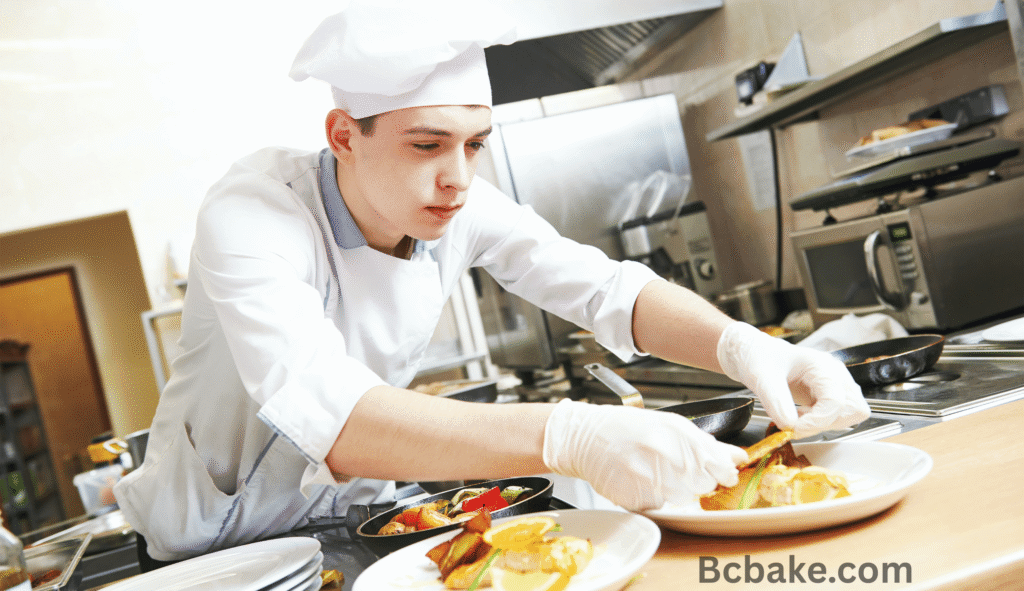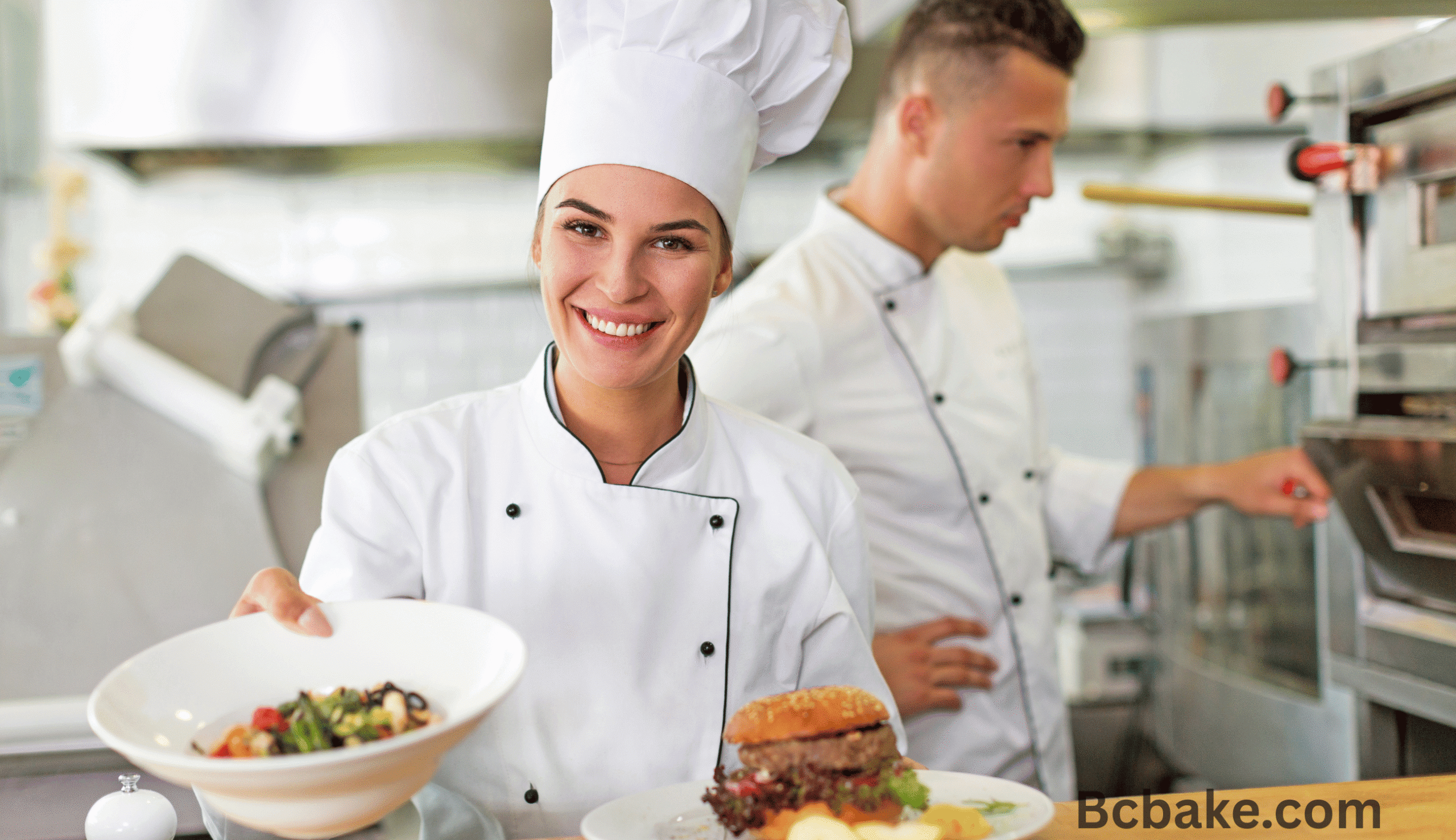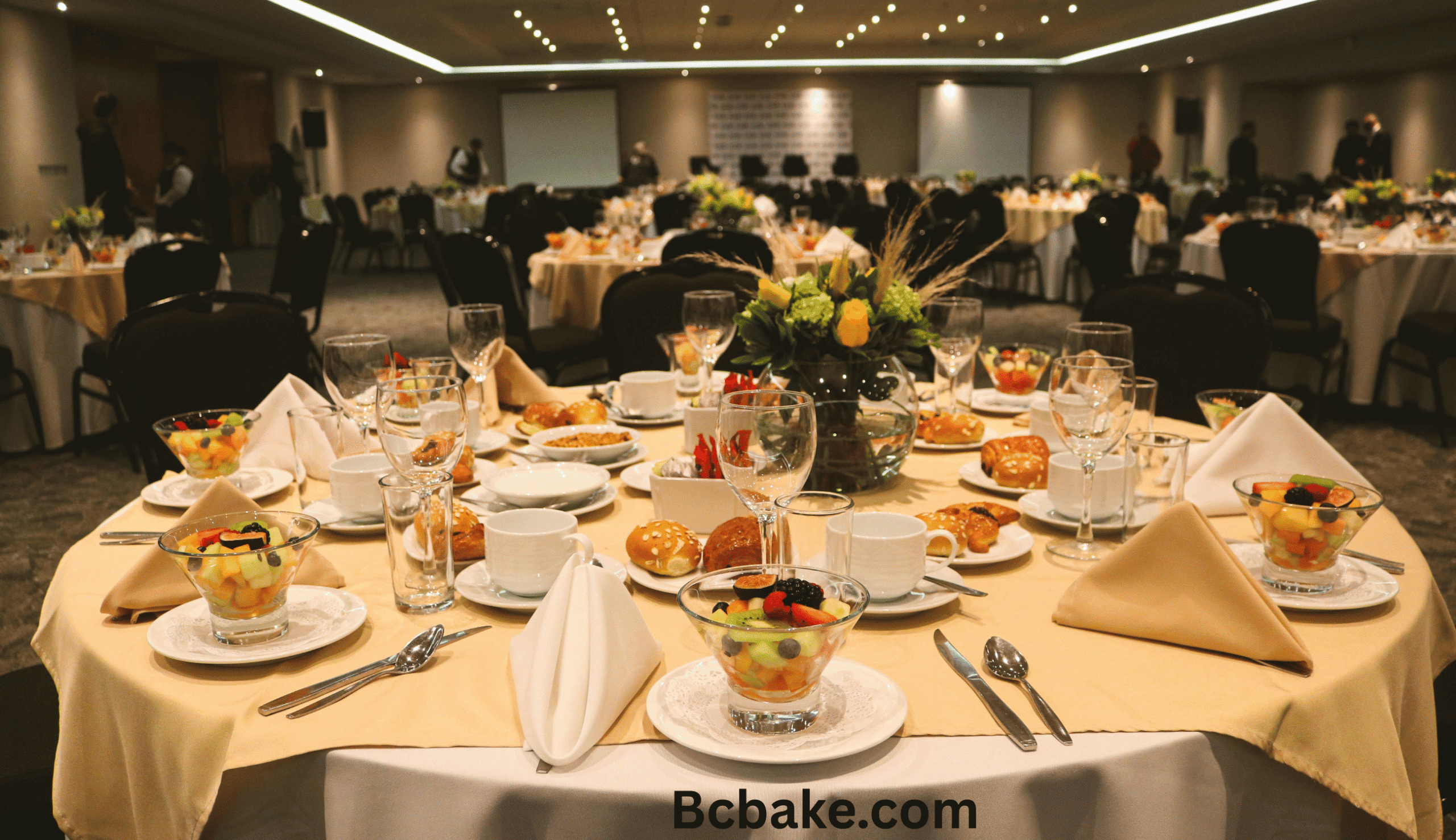
Starting a personal chef business requires a blend of culinary experience, business skills, and effective marketing.
By being proactive and dedicated to delivering exceptional culinary experiences, you can turn your passion for cooking into a successful and rewarding venture in the professional chef industry.
Begin your journey today and let your clients enjoy the finest culinary delights in the comfort of their homes.
How to Start Your Own Personal Chef Business
In the culinary arts, the trend of hiring personal chefs to create exceptional dining experiences at home has gained significant popularity.
If you have a passion for cooking, exceptional culinary skills, and the desire to turn your love of food into a thriving business, starting a personal chef business could be the perfect venture for you.

Let’s review the essential steps to launching your chef business, ensuring a delicious and successful journey.
1. Rediscover Your Passion for Cooking and Develop Your Culinary Skills
Before stepping into the world of personal cheffing, take time to nurture your love for cooking and define your culinary style.
![]() Discover the dishes and techniques that excite you most, and let that passion guide your journey. Your genuine enthusiasm for food will be the foundation of your success as a personal chef.
Discover the dishes and techniques that excite you most, and let that passion guide your journey. Your genuine enthusiasm for food will be the foundation of your success as a personal chef.
i. Focus on Continuous Skill Development
In the competitive landscape of private chefs, standing out requires continuous skill improvement.
Attend cooking classes, participate in workshops, and stay abreast of the latest culinary trends.
Read on: Juicy Beef Kebab with Plantain Recipe; Easy and Flavorful Skewers
By committing yourself in this way, you ensure you’ll offer a diverse and impressive menu, elevating your status as a professional chef in the eyes of your clients.
ii. Recognize Your Role as a Business Owner
Prepare to experience the transition from a passionate cook to a successful business owner.
Understand the dynamics of the food industry, implement effective marketing strategies, and grasp the essential aspects of running a private chef business.
This transformation is key to maintaining and growing your culinary venture.
iii. Plan Menus for Specific Markets
Become a culinary master by mastering the art of menu planning. Tailor your offerings to suit specific markets, ensuring your private chef services are sought after by those with distinctive tastes and preferences.
This targeted approach establishes you as a specialist in the private chef industry.
By emphasizing your role as a professional chef catering to specific markets, you’ll carve your niche in the competitive private chef industry, delighting clients with your personalized culinary prowess.
2. Understand Your Target Market and Develop a Marketing Plan
In the culinary world, understanding your target market is key to establishing a successful personal chef business.
Start by delving into the demographics of your typical customer base and the preferences of potential clients, gaining insights that will guide your culinary journey.
Tailor your menus and services to meet the specific needs of different types of clients, such as dietary preferences, food allergies, and special occasions like anniversaries and dinner parties.
a. Define your target market
Revitalize your marketing tactics by identifying people who align with your expertise and culinary style.
Are you catering to health-conscious customers, those with dietary restrictions, or people seeking gourmet experiences?
Understanding your target market allows you to tailor your offerings to meet their specific desires.
b. Meets the Needs of Each Client
Recognize the uniqueness of each customer. Consider creating personalized menus that resonate with their tastes and preferences.
This approach not only enhances the dining experience but also establishes a strong connection, fostering loyalty and positive word-of-mouth recommendations.
c. Balance Food Costs and Quality
Understanding your target market involves recognizing the financial aspect. Find a balance between offering delicious, high-quality meals and managing food costs.
See also: Best Fried Rice Recipe Chicken for Family Dinners and Special Occasions
Adapt your pricing strategy to align with your customer base, ensuring affordability without compromising the excellence of your culinary creations.
d. Create a Comprehensive Marketing Plan
Once you’ve focused on your target market, it’s time to showcase your personal chef services through a well-crafted marketing plan.
Highlight the unique experiences you offer, emphasizing your culinary skills and the exceptional value you provide.
Use digital marketing to expand your reach and attract more clients. Create an online presence that highlights your skills, signature dishes, and menu options, while making it easy for customers to connect with you.
Be active on social media platforms like Instagram, Facebook, and TikTok to share your culinary creations, engage followers, and build a loyal community around your brand.
3. Establish your Personal Chef Business Model
In the dynamic culinary landscape, your personal chef business can be greatly enhanced by utilizing online platforms.
These platforms connect qualified chefs with clients seeking unparalleled culinary experiences at home.
a. Take the Reins of the Digital Revolution
In an age where everything is just a click away, online platforms offer a safe way to start your personal chef business.
By offering your services to an ever-growing audience of potential clients online, you can effortlessly start booking culinary experiences.
Food industry-oriented platforms simplify the entire process, allowing customers to choose a date, select a menu, and manage their needs with ease.
No more hassles dealing with administrative tasks and the challenges of being a sole proprietor; instead, you’ll experience a seamless experience.
b. Simplified Reservations
The convenience of booking a personal chef online for various occasions and group sizes is unparalleled.
Clients don’t have to worry about the hassle of cooking when a professional chef can come and prepare the perfect dinner, ensuring a pleasant and stress-free experience.
c. Building Trust and Credibility
Online platforms offer a transparent environment that benefits both chefs and customers. For chefs, these platforms serve as a stage to showcase their culinary expertise.
Positive reviews and ratings help build trust and credibility, attracting a broader clientele.
d. A Market for All Food Preferences
The beauty of online platforms lies in the exposure to a diverse group of qualified chefs . Customers can browse profiles, read reviews, and select a chef who aligns with their preferences and requirements.
This ensures a tailored culinary experience that exceeds their expectations.
With the ability to discover a wide variety of menus , customers have the flexibility to choose from different cuisines, cooking styles, and dietary preferences.
Whether it’s an authentic barbecue, a vegan cooking class , or anything in between, these platforms cater to diverse tastes.
4. Prepare Your Kitchen Equipment for Exceptional Culinary Excellence
A well-equipped kitchen is the cornerstone of a successful personal chef business.
Read more: Vegetable Soup with Meat: Ingredients, Cooking Steps & Health Benefits
To provide the best culinary experience for your clients, it’s essential to design an efficient kitchen setup and invest in high-quality kitchen utensils and equipment.
Let’s explore the key aspects to consider:
a. Design your Kitchen Space
Creating an efficient layout for your kitchen is crucial to optimizing your culinary operations. Allocate dedicated spaces for food preparation, cooking, and cleaning.
Consider ergonomic design principles to improve workflow, ensuring a smooth and organized kitchen environment.
It’s also important to keep in mind that, as a personal chef, you’ll need to move your equipment to various locations. Plan accordingly so you always have all the tools at hand when you need them.
b. Invest in High-Quality Equipment
Quality is essential in the culinary world. Evaluate the financial aspects of setting up your kitchen.
Invest in high-quality kitchen utensils, knives, pots, pans, and appliances to ensure precision in your craft.
A reliable set of equipment not only enhances your culinary experience but also reflects professionalism, leaving a lasting impression on your customers.
c. Ensuring Safe Practices and Liability Insurance
Prioritize kitchen safety by implementing best practices. Consider purchasing liability insurance to protect your business in the event of unforeseen incidents.

This not only protects your customers but also provides peace of mind while you focus on delivering exceptional culinary experiences.
d. Minimize Food Waste
Efficiency in meal preparation means minimizing food waste. It’s essential to address your customers’ dietary concerns and be mindful of ingredient use.
Practice portion control and creative ingredient use to reduce unnecessary waste. A mindful approach not only benefits your bottom line but also aligns with environmentally friendly practices.
e. Adapt your Financial Plan to Different Types of Cuisine
Understand the diversity of foods you plan to offer. Efficiently manage food types, considering storage, preparation, and cooking requirements.
Whether you specialize in fine dining, comfort food, or international flavors, having the right tools for different types of cuisine improves your versatility and broadens your appeal to a diverse clientele.
f. Implement Safe Practices
Always make food safety your top priority. Practice proper handling, storage, and kitchen hygiene to protect both yourself and your clients.
Earning a food safety certification and keeping up with current health regulations will help you maintain professional standards and build trust with your customers.
5. Plan a Wide Variety of Menus for Special Events
Variety is the spice of life, and creating distinctive menus tailored for special events is a hallmark of a successful personal chef business.
Check out: How to Host the Perfect Barbecue Party: 8 Tips for the Ultimate Summer Cookout
This process not only involves showcasing your culinary prowess, but also deepening your relationship with clients and addressing their specific needs and preferences.
i. Build a Strong Relationship with Customers
Menu planning for special events provides a unique opportunity to strengthen your relationship with your guests. Involve them in the process, gather their feedback, and tailor the menu to their tastes.
This collaborative approach not only demonstrates your commitment to customer satisfaction but also fosters trust and loyalty.
ii. Prepare for Different Types of Social Events
Different occasions demand different culinary approaches. Whether it’s an intimate dinner, a corporate event , or a unique celebration like a margarita party, craft menus that align with the theme and purpose of the special event.
Tailoring your offerings to the specific nature of the occasion enhances the overall experience.
For example, if your client is hosting a margarita party, design a menu that complements the theme with tasty and complementary dishes.
This attention to detail enhances the overall atmosphere of the event and leaves a lasting impression on your clients and their guests.
iii. Understanding Dietary Requirements
One of the pillars of menu planning for special events is a comprehensive understanding of each individual client’s dietary requirements.
Addressing specific dietary needs, such as low-salt requirements, demonstrates your flexibility and commitment to addressing individual health considerations.
Designing menus that are both delicious and compliant with dietary restrictions ensures that guests with diverse needs can always enjoy your culinary creations.
See more: How to Host a Brunch with Friends: Planning, Decor, and Menu Inspiration
Whether they have specific allergies, preferences, or dietary restrictions, incorporating these considerations into your menus ensures a personalized and enjoyable dining experience.
Conclusion: Turning Your Passion Into a Thriving Personal Chef Business
Starting a personal chef business is more than just cooking delicious meals, it’s about turning your passion into a fulfilling and profitable career.
With the right planning, marketing, and commitment to quality, you can build a business that brings joy to others and freedom to your own life.
Remember, every successful chef starts somewhere, often with a single recipe and a dream.
Stay consistent, keep refining your culinary skills, and never underestimate the power of word-of-mouth and social media in growing your brand.
Before long, you could find yourself booked out months in advance and doing what you love every single day.
If you’re ready to start your journey, there’s no better time than now. Tie on your apron, set your goals, and take the first step toward building your very own personal chef empire


